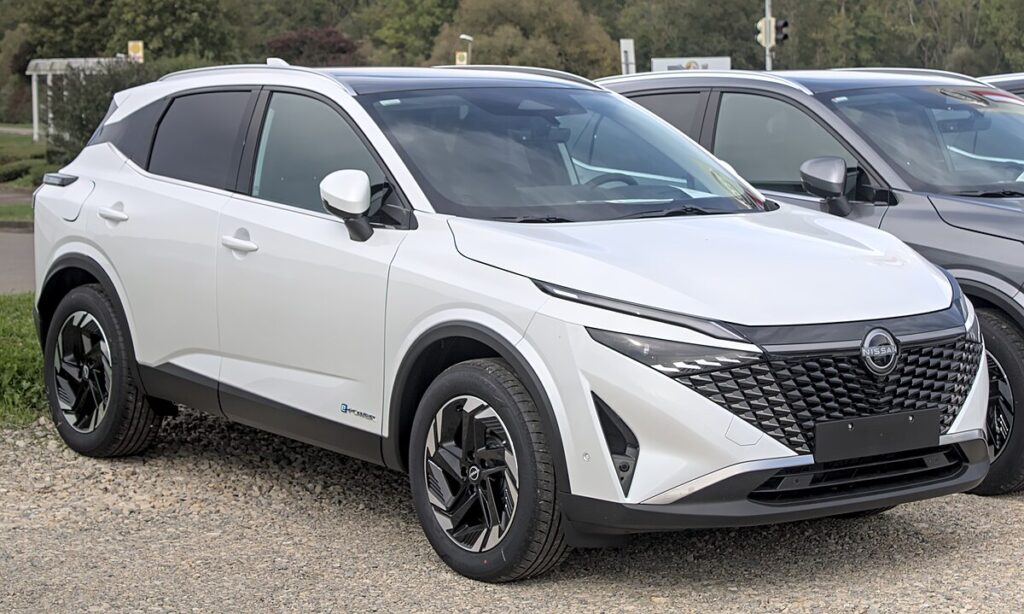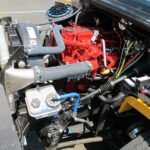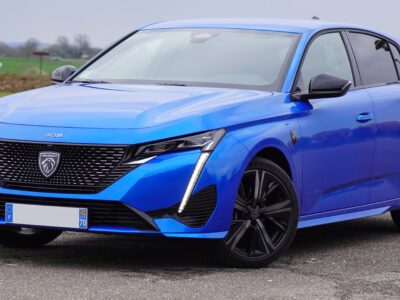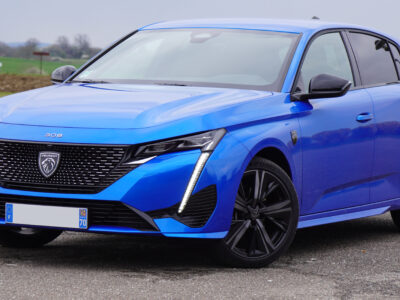
Nissan Qashqai DPF Problems: Symptoms, Causes, and Expert Solutions

Diesel Particulate Filter (DPF) issues are among the most common concerns for Nissan Qashqai owners. As a critical component in reducing harmful emissions, the DPF ensures compliance with environmental standards. However, when problems arise, they can severely impact performance, fuel efficiency, and engine reliability.
In this comprehensive guide, we explain every aspect of Nissan Qashqai DPF problems—including symptoms, causes, repair options, and expert maintenance tips to help prevent future failures.
- 🔧 What Is the DPF in the Nissan Qashqai?
- 🚨 Common Symptoms of Nissan Qashqai DPF Problems
- ⚙️ Causes of DPF Problems in the Nissan Qashqai
- 🧰 Expert Solutions to Fix Nissan Qashqai DPF Problems
- 🔍 Maintenance Tips to Prevent DPF Problems
- 📊 Quick Reference Table: Causes and Fixes
- ⚠️ Recalls and Reported Issues
- 🧭 Recommended Driving Habits for Diesel Qashqai Owners
- 🏁 Conclusion: Keep Your Qashqai’s DPF Healthy
🔧 What Is the DPF in the Nissan Qashqai?
The Diesel Particulate Filter (DPF) captures soot and carbon particles from the exhaust gases produced by diesel engines. Over time, these particles accumulate, requiring a process called regeneration to burn off the residue and keep the system clean. When this process fails or is interrupted, the DPF becomes clogged—triggering warning lights and performance issues.
🚨 Common Symptoms of Nissan Qashqai DPF Problems
1. DPF Warning Light or Engine Light
The most immediate indicator of a blocked DPF is the illumination of a DPF or check engine light on the dashboard. This warning typically signals excessive soot buildup that requires regeneration or manual cleaning.
2. Reduced Engine Power
A clogged DPF restricts exhaust flow, forcing the engine to work harder. This leads to loss of power, sluggish acceleration, and an overall decline in performance—particularly noticeable on inclines or during overtaking.
3. Increased Fuel Consumption
When the DPF struggles to regenerate, fuel efficiency drops. The engine burns extra diesel to maintain exhaust temperatures, resulting in noticeably higher fuel consumption.
4. Black Smoke from the Exhaust
Visible black exhaust smoke often suggests that the DPF can no longer trap soot effectively. It may also indicate incomplete combustion caused by blocked filters or injector issues.
You may be interested in reading Nissan Qashqai Juddering When Accelerating: Causes, Fixes, and Expert Diagnosis
Nissan Qashqai Juddering When Accelerating: Causes, Fixes, and Expert Diagnosis5. Unusual Smells from the Exhaust
If you detect a strong diesel or burning odor, it could indicate failed regeneration or unburned fuel in the exhaust system.
6. Regeneration Failure
In normal operation, the DPF self-cleans through active or passive regeneration. Frequent short trips prevent this process from completing, resulting in repeated failed regenerations.
7. Engine Misfire or Stalling
In severe cases, back pressure from a fully blocked DPF can cause engine hesitation, misfire, or even stalling. This requires immediate attention to avoid permanent engine damage.
⚙️ Causes of DPF Problems in the Nissan Qashqai
| Cause | Description | Effect on Vehicle |
|---|---|---|
| Frequent Short Trips | Engine doesn’t reach optimal temperature for DPF regeneration | Excessive soot buildup |
| Faulty Sensors | Pressure or temperature sensors feeding incorrect data | Failed regeneration cycles |
| Poor-Quality Diesel Fuel | Increases soot production | Faster DPF saturation |
| Fuel Leaks or Injector Faults | Unburned fuel entering the exhaust system | Clogs DPF with residue |
| EGR Valve Issues | Faulty exhaust gas recirculation increases soot | Shortens DPF lifespan |
| Turbocharger Failure | Incomplete combustion and oil contamination | Blocked filter channels |
| Software Faults | ECU mismanagement of regeneration timing | Persistent DPF warnings |
🧰 Expert Solutions to Fix Nissan Qashqai DPF Problems
1. Professional DPF Cleaning
A deep-cleaning service can remove accumulated soot and ash without replacing the filter. This process is far more affordable than DPF replacement and typically restores full performance.
2. Forced Regeneration
If the blockage isn’t severe, a forced regeneration via diagnostic equipment can burn off the soot buildup by raising exhaust temperatures under controlled conditions.
3. Sensor and Injector Diagnosis
Faulty pressure or temperature sensors often cause false readings that interrupt regeneration. Similarly, leaking injectors can flood the DPF with unburned fuel. Both should be inspected and replaced as necessary.
4. Software Update or ECU Reset
Nissan periodically releases ECU updates to optimize DPF management. Checking for software recalls or updates can resolve recurring DPF warnings.
You may be interested in reading Nissan Qashqai Juddering When Accelerating: Causes, Fixes, and Expert Diagnosis
Nissan Qashqai Juddering When Accelerating: Causes, Fixes, and Expert Diagnosis Common Dacia Sandero Stepway Problems and Symptoms (Full Guide)
Common Dacia Sandero Stepway Problems and Symptoms (Full Guide)5. DPF Replacement
In extreme cases, a completely saturated or damaged DPF must be replaced. The cost typically ranges between £700 and £2,000, depending on the model and region.
🔍 Maintenance Tips to Prevent DPF Problems
1. Drive at Highway Speeds Regularly
Short urban drives don’t allow the exhaust to reach regeneration temperature. A 20–30 minute motorway drive at least once a week helps keep the DPF clean.
2. Use High-Quality Diesel Fuel
Premium diesel contains additives that reduce soot production and improve combustion efficiency, prolonging DPF lifespan.
3. Perform Regular Oil and Filter Changes
Contaminated oil and clogged air filters contribute to incomplete combustion. Follow the manufacturer’s maintenance schedule to maintain clean engine operation.
4. Avoid Switching Off During Regeneration
If you notice the cooling fan running after turning off the engine, it may indicate an active regeneration process. Let it finish to avoid premature blockage.
5. Monitor Fuel Additive Levels
Some Qashqai diesel variants use Eolys fluid for assisted regeneration. Ensure the fluid reservoir is regularly topped up.
📊 Quick Reference Table: Causes and Fixes
| Problem | Likely Cause | Recommended Fix | Estimated Cost |
|---|---|---|---|
| DPF light on | Soot accumulation | Forced regeneration | £150–£250 |
| Reduced power | Blocked DPF | Professional cleaning | £300–£500 |
| Black smoke | Injector fault or failed DPF | Injector service | £250–£400 |
| Poor fuel economy | Regeneration failure | ECU update | £100–£200 |
| Engine stalling | Excessive back pressure | DPF replacement | £700–£2,000 |
⚠️ Recalls and Reported Issues
Nissan previously issued recall campaigns for certain Qashqai diesel models due to DPF regeneration faults in the ECU system. Owners were invited to authorized service centers for free software updates and diagnostics. If your vehicle falls within the 2014–2017 production range, it’s worth confirming whether your VIN was affected.
You may be interested in reading Nissan Qashqai Juddering When Accelerating: Causes, Fixes, and Expert Diagnosis
Nissan Qashqai Juddering When Accelerating: Causes, Fixes, and Expert Diagnosis Common Dacia Sandero Stepway Problems and Symptoms (Full Guide)
Common Dacia Sandero Stepway Problems and Symptoms (Full Guide) Dacia Duster Horn Relay and Fuse Guide (2015 Model)
Dacia Duster Horn Relay and Fuse Guide (2015 Model)🧭 Recommended Driving Habits for Diesel Qashqai Owners
- Take longer, steady drives to facilitate passive regeneration.
- Avoid idling for extended periods.
- Use fuel system cleaners every 10,000 km.
- Schedule a DPF health check every 20,000–30,000 km.
These simple habits drastically reduce the risk of costly DPF replacements.
🏁 Conclusion: Keep Your Qashqai’s DPF Healthy
At its core, DPF maintenance is preventive, not reactive. Addressing symptoms early—whether it’s a dashboard light or reduced performance—can save thousands in repairs. By adopting consistent driving habits, using quality fuel, and keeping your Qashqai serviced regularly, you can ensure a longer DPF lifespan and smoother driving experience.
If you want to know other articles similar to Nissan Qashqai DPF Problems: Symptoms, Causes, and Expert Solutions you can visit the category Common Problems.
Leave a Reply






More content of your interest